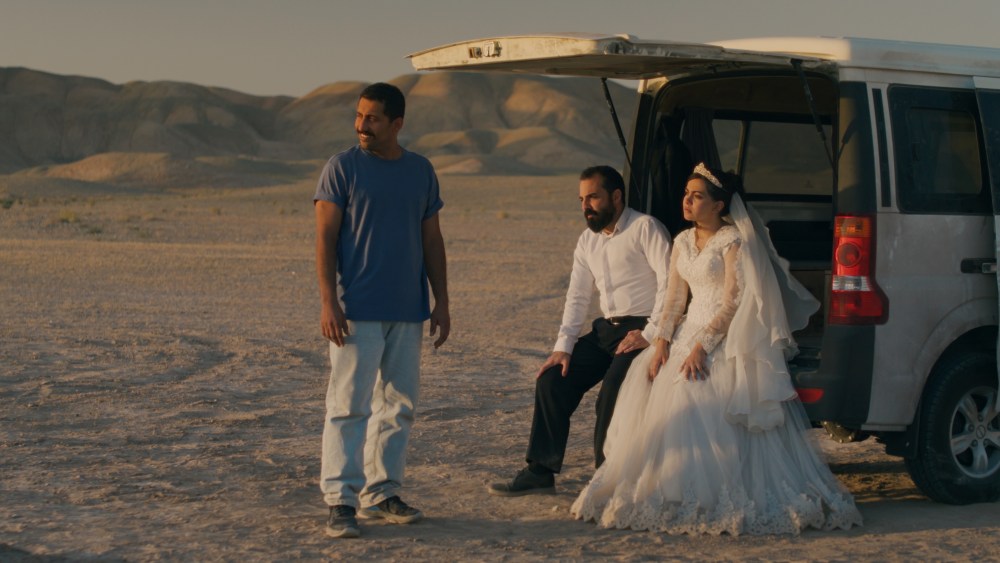Film director Jafar Panahi refused to remain silent.
Twice imprisoned by the Iranian government, Panahi was finally released in 2023 and continues to resist censorship through his art. His latest film, “It Was Just an Accident,” was filmed secretly on the streets of Tehran. Production took place in secrecy, requiring director Panahi to rely on his most trusted collaborators to bring the story to life.
“It Was Just an Accident” centers on a group of former prisoners who encounter a man they believe is the guard who tortured them. With the man captured, the group must decide whether to take revenge. Director Amir Etminan also had to tread carefully, as director Panahi had to work in secrecy and shoot the film in secrecy. Mr. Etminan, through an interpreter, clarified that the minimum amount of portable equipment must be used to complete the work.
“I didn’t have the opportunity to work with any companies or studios in Tehran,” Etminan explained. Most editors rely on cloud-based software, but he couldn’t do that. Instead, he worked with an old MacBook Air and never connected it to the internet. “Before I could start editing, I had to download and update all the software outside of Iran,” he added. Due to the tight security surrounding the film, Etminan was working completely off-grid. He was unable to hire assistants during the editing process and, with a small staff, often had to take on additional logistical responsibilities. Instead, I edited offline using Adobe Premiere.
The production of this film was similarly unconventional due to the risk of government intervention. Etminan noted that the staff did not have a complete script to work with. “Due to the tight security atmosphere, it was not possible to prepare a complete script. Only a rough plot outline with various scenes was prepared, but no detailed dialogues,” he explained. Director Panahi was concerned that the presence of a complete script could cause serious problems if authorities came to the set. Instead, each morning, Panahi provided details of the day’s conversations and scenes to keep the project in the spotlight.
The film’s theme of revenge echoes throughout the story. Vahid (played by Vahid Mobaseli) meets a man named Egbal (Ebrahim Azizi), nicknamed Pegleg because his prosthetic leg creaks, and encounters his pregnant wife in a broken down car. Peg Leg accidentally runs over a stray dog and is now stranded in a small town. Vahid, a mechanic’s assistant, realizes that the man he helped was the same prison officer who brutally tortured him. Driven by hatred, Vahid comes close to killing his former tormentor, but ultimately abandons the idea.
In editing the film, Etminan sought to inject humor into the tone without compromising realism. “Humor comes naturally to them,” he said, explaining how he balanced the film’s dark themes with lighter moments. He added, “Mr. Panahi didn’t want to exaggerate anything. Everything needed to feel natural and authentic because it reflects real life.”
By the end of the film, Vahid and Shiva (Maryam Afshari) tie Egbal to a tree as he is interrogated under the red glow of a car’s taillights. Vahid now has an upper hand over the man who once oppressed him. However, when forced to choose revenge, Vahid ultimately lets it go and decides not to commit the atrocity. This moment symbolizes Panahi’s message that revenge and violence are not the answer, and that mercy should prevail.
Etminan admitted that this solution was intentional in the script. The final shot shows Vahid walking down a hallway, the sound of Egbal’s peg foot echoing behind him. You can hear Egbal’s voice, but you can’t see him, his footsteps approaching and then disappearing. Etminan explained that his goal was to portray a man striving for a normal life in the shadow of authoritarianism and totalitarianism. Director Panahi’s emphasis on moral values over revenge underscores the film’s central message.

